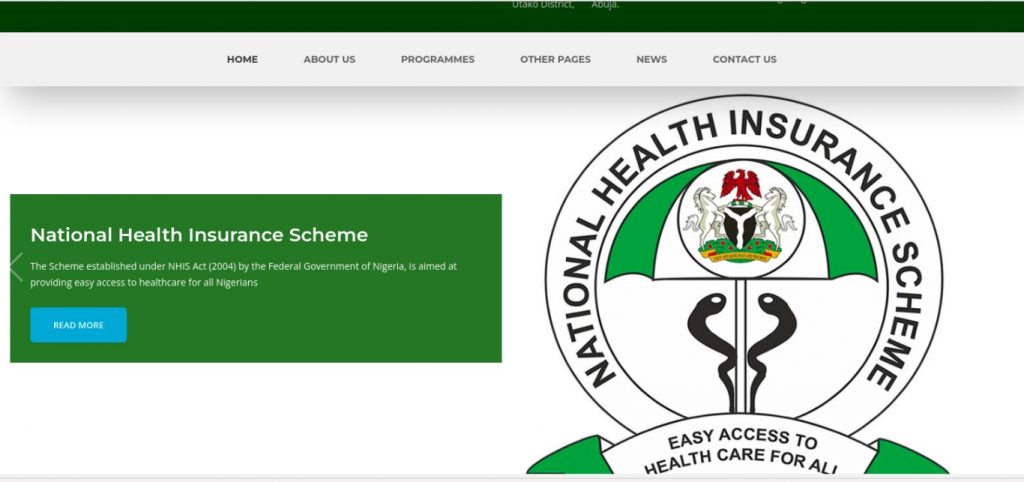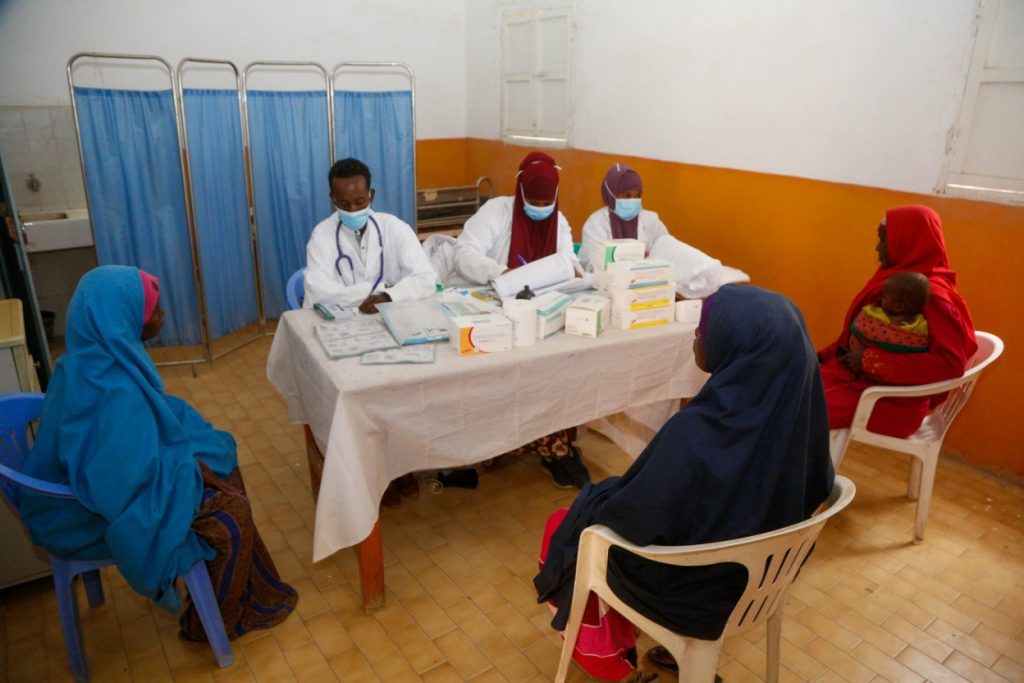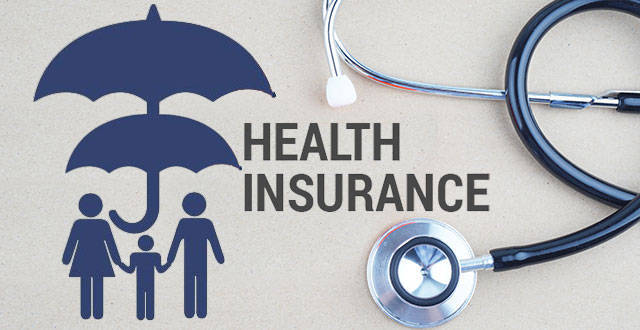last Updated on December 23, 2023
Health is the ultimate wealth, and as a Nigerian, safeguarding your well-being should be a top priority as your health is your most valuable asset. However, unexpected medical expenses can cause significant financial strain.
In the face of unexpected medical expenses, health insurance serves as a protective shield, ensuring that you can access quality healthcare without bearing the full burden of financial strain. Health insurance in Nigeria can be the difference between life and death.
In this comprehensive guide, we’ll be discussing health insurance in Nigeria, shedding light on its importance, types, coverage, and more. Prepare to embark on a journey that will empower you with knowledge, enabling you to make informed decisions about securing your health and financial peace of mind.
Types of Health Insurance in Nigeria
Currently, there are basically two types of health insurance available to Nigerians. They are:
- National Health Insurance Scheme (NHIS).
- Private Insurance
While there are usually three major types of health insurance plans available to Nigerians;
- HSA (Health Savings Account)
- HDHPs (high deductible plans)
- POS (Point Of Service)
What are the Health Problems in Nigeria?
Some of the common health problems in Nigeria faces are infectious diseases, vector-borne diseases, poor sanitation and hygiene, non-communicable diseases, road traffic injuries, maternal mortality, and infant mortality among others.
What is Health Insurance?
Health insurance is an agreement whereby an organization (insurance company) is paid a set amount of money each month (premium).
In turn, the insurance company agrees to pay doctors, hospitals, and pharmacies when you get sick, get examined, or buy prescription drugs.
When an insurance company pays for your health care, it is called “covering” your services.
Health insurance in Nigeria is provided by the government through a health insurance scheme in Nigeria and also by private companies in partnership with private health care providers.
Related: Comprehensive Car Insurance in Nigeria
The Importance of Health Insurance in Nigeria


Nigeria’s healthcare landscape faces numerous challenges, including limited access and high treatment costs. Health insurance plays a crucial role in bridging these gaps, ensuring that you and your loved ones can receive timely and quality healthcare, regardless of financial constraints.
Because of how expensive medical care can be, it makes sense to buy a health insurance policy for yourself and your family. So whenever a medical emergency arises, you’ll have less stress on your financial resources.
Finding the best health insurance in Nigeria that fits your criteria can be a bit tricky. Common criteria can include plan prices, policy offerings, customer service ratings, claims service, coverage benefits, and provider choices.
However, your best decision will be based on depending on the type of health insurance you need, your budget, and what is available in your area.
An ideal health insurance policy will cover expenses made towards hospitalization, doctor consultation, and medical tests. Sometimes post-hospitalization recovery costs can also be covered to a certain extent.
Access to health insurance in Nigeria may vary from state to state because where you live, will determine which health insurance companies are available to you and the coverage offerings they offer.
The penetration of health insurance is still relatively low in Nigeria. This guide seeks to answer all the pertinent questions you may have regarding the types of health insurance in Nigeria.
National Health Insurance Scheme (NHIS) Coverage


What is the National Health Insurance Scheme in Nigeria?
The National Health Insurance Scheme (NHIS) is a government initiative designed to provide affordable healthcare to Nigerians. NHIS offers a wide array of benefits, ranging from outpatient services to specialized treatments.
These citizens must either be government employees, in the organised private or informal sector, children under five, permanently disabled persons and prison inmates. However, less than 5% of Nigerians are covered by NHIS.
What Does NHIS Cover in Nigeria?
NHIS coverage and benefits in Nigeria include the following:
- Receive Outpatient care or treatment (that is, a treatment that does not require an overnight stay in a hospital or medical facility), including necessary drugs, injections, and drip.
- Receive prescribed drugs, pharmaceutical care as well as diagnostic tests.
- Receive maternity care for up to four (4) live births for every insured contributor/couple in the formal sector Program. Additional care is also available if any stillbirth occurs.
- All live births requiring covering or incubation will be incubated appropriately during the post-natal period of twelve (12) weeks from the date of delivery.
- All preterm/premature babies eligible for covering or incubation shall be covered for twelve (12) weeks from the date of delivery.
- Preventive care includes immunization as it applies in the National immunization program, Health Education, Family planning (counseling), antenatal and post-natal care, as well as adult immunization against Human papillomavirus (HPV) and hepatitis.
- Consultation with a specialist such as physicians, pediatrics, obstetricians, gynecologists, general surgeons, orthopedic surgeons, ENT, dental surgeons, radiologists, psychiatrists, ophthalmologists physiotherapists, etc.
- Hospital care in a standard ward for a cumulative limited stay of 21 days per year.
- Eye examination and care, the provision of low-priced spectacles but excluding contact lenses.
- All ophthalmological cases can be handled at the primary level except those requiring tertiary care or on the exclusion list.
- A range of prostheses (limited to artificial limbs produced in Nigeria).
- Preventive dental care and pain relief (including consultation, dental Health education, amalgam filling, and simple extraction).
- Root-canal treatment; treatment is needed when an injury or a large cavity damages the tooth’s root (maximum of two treatments).
Private Health Insurance
While NHIS caters to the needs of many Nigerians, private health insurance presents an alternative for those seeking more comprehensive coverage or specialized services.
The companies that provide private health insurance in Nigeria have plans/packages that are targeted at Nigerians who aren’t covered by the National Health Insurance Scheme (NHIS) or for which the NHIS does not provide sufficient enough covering.
These private health insurance providers have to go through an accreditation process with the National Health Insurance Scheme. Before they are allowed to operate as health insurance providers.
Adults can enroll for any health insurance plan of their choice. They can also sign up to four dependents including their spouse with both the NHIS and private health insurance providers. However, dependents must not be older than eighteen years of age, except for the spouse. When an enrolled dependent turns eighteen, they will register separately.
Also See: Top Insurance Companies in Nigeria
Here are the different types of private health insurance available to you in Nigeria, empowering you to make an informed choice based on your specific requirements:
Individual Health Insurance
This is for those who prefer personalized coverage, individual health insurance plans offer flexibility and tailored benefits.
Group Health Insurance
Group health insurance plans cater to organizations and their employees, providing a cost-effective way to ensure the well-being of a collective. These plans can serve as a valuable asset for both employers and employees.
Family Health Insurance
Your family’s health is priceless. Family health insurance plans provide coverage for you, your spouse, and your children, offering peace of mind during medical emergencies.
Corporate Health Insurance
In the corporate world, the well-being of employees directly impacts productivity and success. Corporate health insurance plans provide comprehensive coverage, fostering a healthy workforce and demonstrating an organization’s commitment to employee welfare.
Health Insurance Plans in Nigeria
A health insurance plan offers a particular set of health care benefits based on the premium agreed between the enrollee and the health insurance company. There are usually four major types of health insurance plans; EPOs, HMOs, HDHPs, and POs. However, Health maintenance organization plans (HMOs) are more popular in Nigeria than their other counterparts.
HMOs, require that you choose a primary care physician or provider that is on their list of providers. This primary provider coordinates all of your healthcare needs.
Although HMO plans usually prohibit you from seeing out-of-network providers unless it is prearranged by your primary care provider and approved by the insurance or it is an emergency.
HMOs in Nigeria provide different health insurance packages for individuals, families, and businesses. These packages also include different tiers e.g Gold, silver, bronze, and platinum. Some of these packages allow you to pay monthly, quarterly, or annually.
Health Insurance in Nigeria Benefits and Coverage
Comprehensive health insurance coverage ensures that you can access a range of medical services without straining your finances. Here are some specific benefits and coverage areas provided by health insurance plans in Nigeria:
Outpatient Services
From routine check-ups to specialist consultations, outpatient services form a critical component of healthcare.
Inpatient Services
During hospital stays and surgeries, health insurance acts as a shield against exorbitant bills. The extent of coverage provided for inpatient services, gives you the confidence to seek necessary treatments without hesitation.
Maternity Coverage
Welcoming a new life into the world is a joyous occasion, but it comes with significant healthcare expenses. Health insurance can alleviate the financial burden by offering comprehensive coverage for prenatal, delivery, and postnatal care.
Preventive Care
Prevention is better than cure, and health insurance understands this well. Explore the preventive care benefits included in health insurance plans, encouraging you to prioritize wellness and proactive health management.
Prescription Drugs
Medications play a vital role in healing and managing health conditions. We unveil the coverage provided for prescription drugs, ensuring that you have access to the necessary medications without breaking the bank.
Dental and Vision Care
Oral and visual health are integral to overall well-being. Health insurance plans often extend coverage to dental and vision care, empowering you to maintain optimal dental hygiene and clear vision.
Emergency Services and Ambulance Coverage
In emergencies, every second counts. Health insurance covers emergency services and ambulance costs, offering swift and efficient medical assistance when you need it most.
Mental Health Coverage
Mental health is as important as physical health. Recognizing this, health insurance plans increasingly include coverage for mental health services, ensuring comprehensive care for your well-being.
Best Health Insurance in Nigeria: Which HMO is the best in Nigeria?


Based on affordability, nationwide hospital network, instant access (No need for filling long forms), awesome customer care and a loyalty reward program. We have listed some of the Best HMOs in Nigeria:
- Reliance HMO
- Avon HMO
- Hygeia HMO
- AIICO HMO Nigeria
- Clearline HMO
- Redcare HMO
- Anchor HMO
- Roding HMO
- Prohealth HMO
- Metro Health
- Hallmark
How is Healthcare Funded in Nigeria?
In Nigeria, revenue for financing the health sector is collected majorly from pooled and unpooled sources.
The pooled sources are collected from budgetary allocation, direct and indirect taxation as well as donor funding.
The unpooled sources contribute over 70% of total health expenditure (THE). This is usually in the form of fees (informal or formal direct payments to healthcare providers at the time of service) which account for 90%.
And also payments for goods (medical products such as bed nets, or condoms) which account for 10%.
Choosing the Right Health Insurance Plan in Nigeria
Choosing the right health insurance plan can be a daunting task. To make an informed decision based on your needs and preferences, it’s important to assess your healthcare needs and budget. You need to consider factors such as your age, health condition, family size, and financial capabilities.
Health insurance plans often have a network of healthcare providers with whom they have agreements. We emphasize the significance of checking the network of providers to ensure that your preferred doctors, hospitals, and specialists are included in the coverage.
Also understanding the cost structure of health insurance plans and how they impact your overall expenses is essential. Health insurance plans may have certain exclusions and waiting periods before specific services are covered, so ensure that you are aware of any limitations or waiting periods that may apply to your policy.
Some health insurance plans offer additional benefits and value-added services to enhance your coverage. We highlight these extras, such as wellness programs, telemedicine services, and access to health management tools, enabling you to make the most of your health insurance plan.
Maximizing Your Health Insurance Coverage Health insurance is a valuable asset, and utilizing it effectively can maximize its benefits. Thoroughly understanding your health insurance policy’s terms and conditions is essential. As your healthcare needs evolve over time, it’s crucial to review and update your health insurance policy periodically.
Preventive care is a cornerstone of maintaining good health. We emphasize the importance of utilizing preventive care services covered by your health insurance plan, including routine check-ups, screenings, vaccinations, and lifestyle management programs. Staying informed about Coverage Changes and Updates on your health insurance plans is vital to ensure that you have up-to-date information and can take appropriate actions.
Health insurance is a crucial tool for protecting your well-being and financial stability. By understanding the nuances of health insurance in Nigeria, exploring the various types of plans available, comprehending the benefits and coverage they offer, and making informed choices, you can secure the best possible healthcare for yourself and your loved ones. Remember, investing in health insurance is an investment in your future, ensuring that you can navigate the complexities of healthcare with confidence and peace of mind.
Is there Free Healthcare in Nigeria?
No there isn’t free healthcare in Nigeria. However, enrolling in NHIS or buying a health insurance policy from a private firm. It will help to offset part of the cost of future health emergencies.
How much is Health Insurance in Nigeria?
The cost of health insurance in Nigeria is N10,000 Naira per head for parents and their kids for the National Health Insurance Scheme (NHIS). While for private health insurance providers plans can cost anywhere between N30,000 and N250,000 for individuals, while family plans and N120,000 to N700,000 for families.
How to get Health Insurance in Nigeria
You can get health insurance in Nigeria by registering for NHIS or by obtaining a health insurance plan from a private insurance company as long as you’re employed or self-employed.
Related Insurance Content:


Leave a Reply